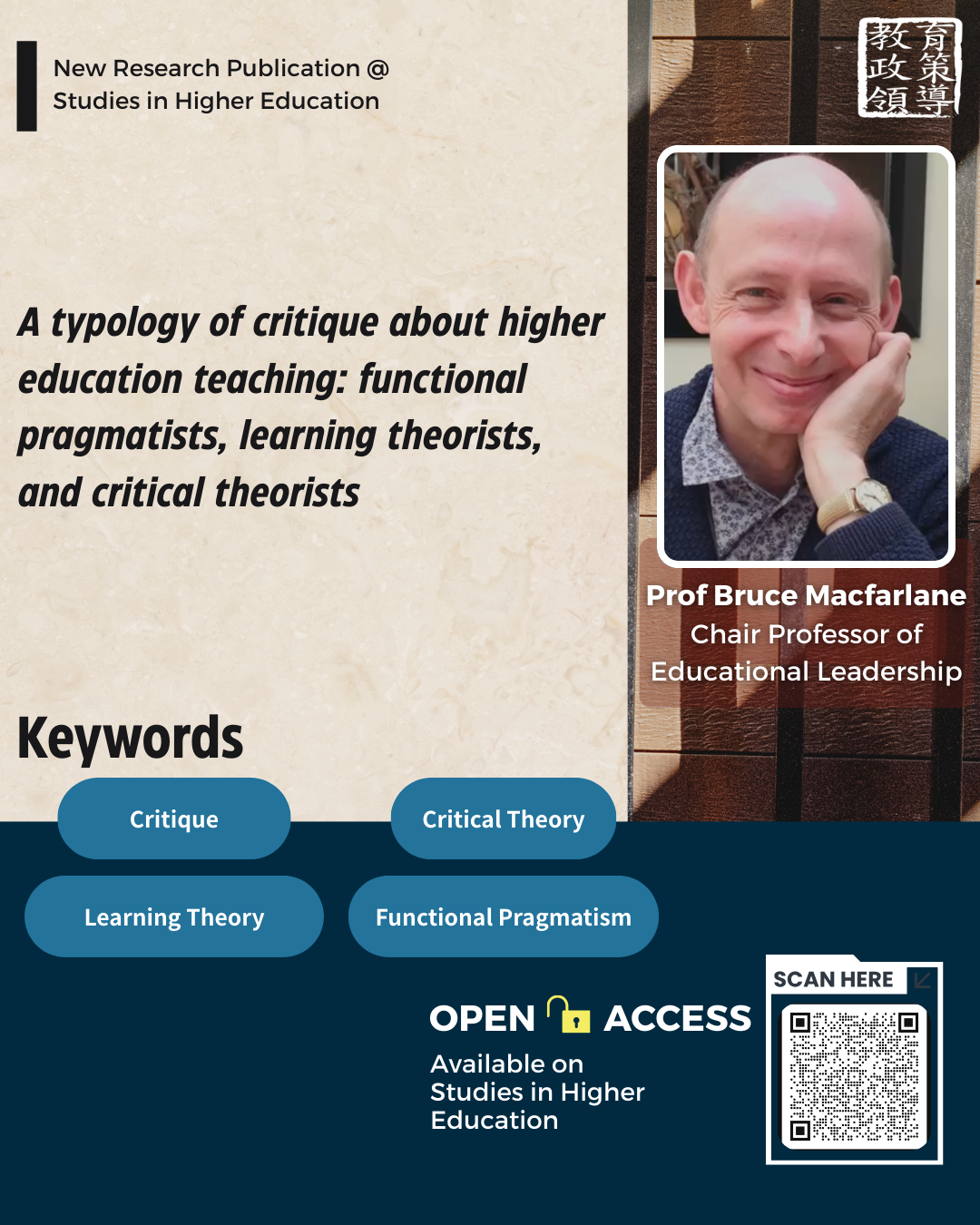
We extend our congratulations to Prof Bruce Macfarlane, Chair Professor of Educational Leadership of the Department of Education Policy and Leadership and Dean of the Faculty of Education and Human Development, on the publication of his latest article titled “A typology of critique about higher education teaching: functional pragmatists, learning theorists, and critical theorists” in Studies in Higher Education.
Abstract:
This paper develops a typology for understanding forms of critique about teaching in higher education by drawing on a thematic analysis of papers published in a specialistjournal between 1996 and 2023. Based on an analysis of more than 1,000 papers, three broad conceptual categories of critique are identified, labelled as functional pragmatism, learning theory, and critical theory. Functional pragmatism is largely data-driven and concerned with critiquing so-called ‘traditional’ teaching methods. Learning theorists self-identify with particular teaching and learning approaches and methods such as social constructivism, experiential learning, reflexivity, action learning, problem-based learning, and the ‘flipped’ classroom to advocate change while critical theorists advance multi-global perspectives pertaining to equity and social justice including climate change and sustainability, epistemic injustice, southern theory, indigenisation and decolonisation, feminism, social and racial justice, and often critique the effects of neo-liberalism. Over time there has been a shifting balance between these three types of critique with critical theory now in the ascendancy and functional pragmatism in decline. This is indicative of a substantial re-balancing between abstract empiricism and grand theory with researchers shifting from considering ‘what works?’ on the basis of observation, testing and measurement to ‘what is wrong and needs to change?’ by reference to more philosophically and sociologically grounded explanatory frameworks.
Click HERE to read the full article.